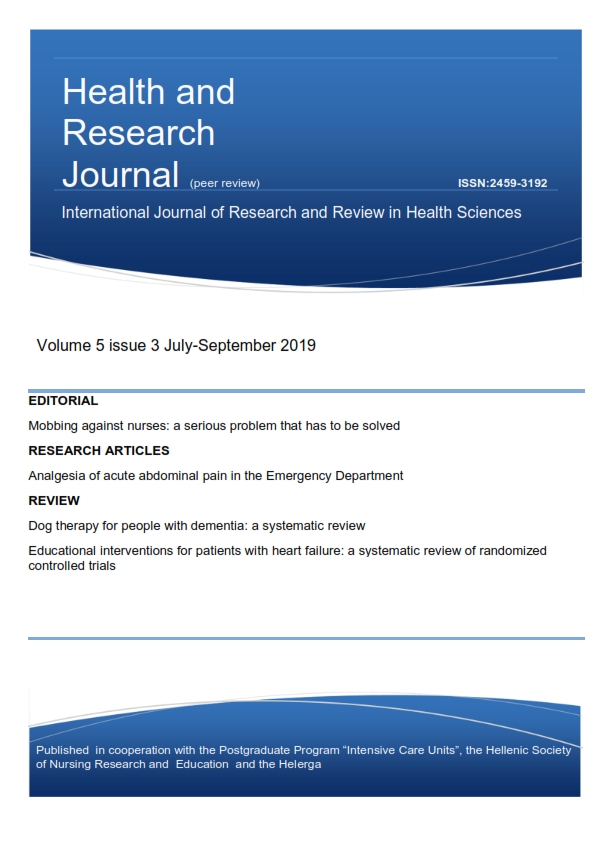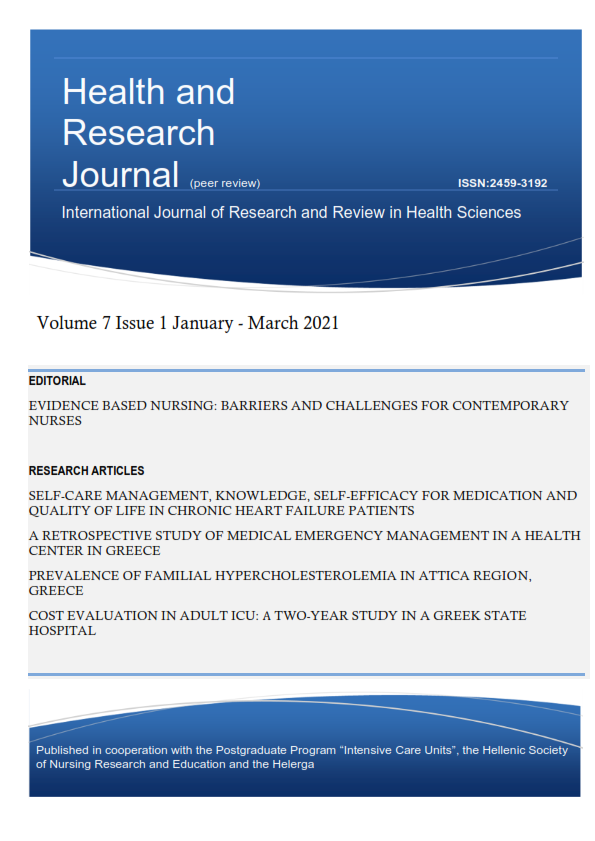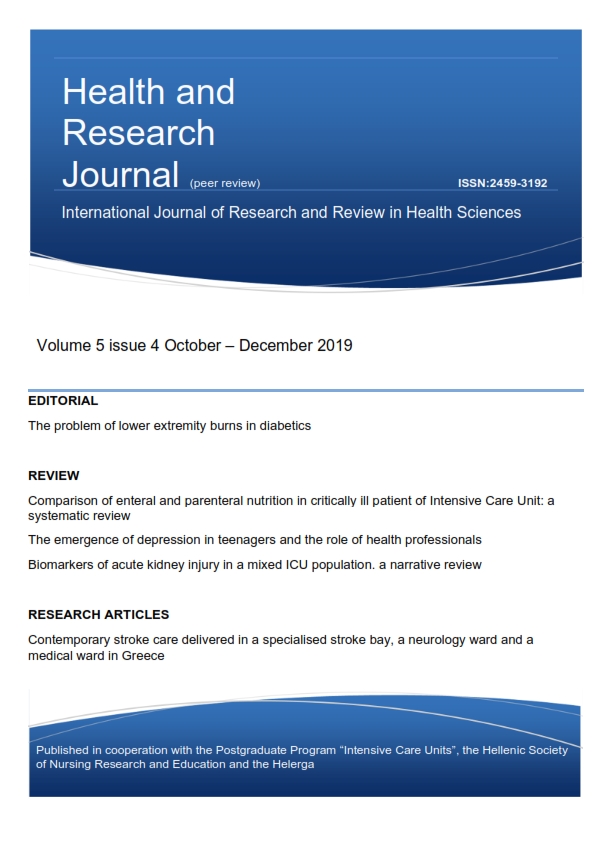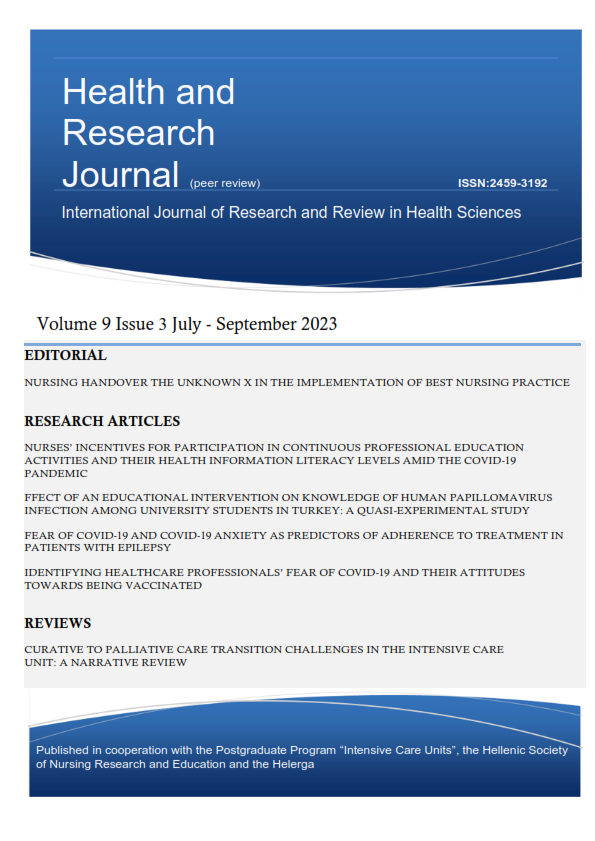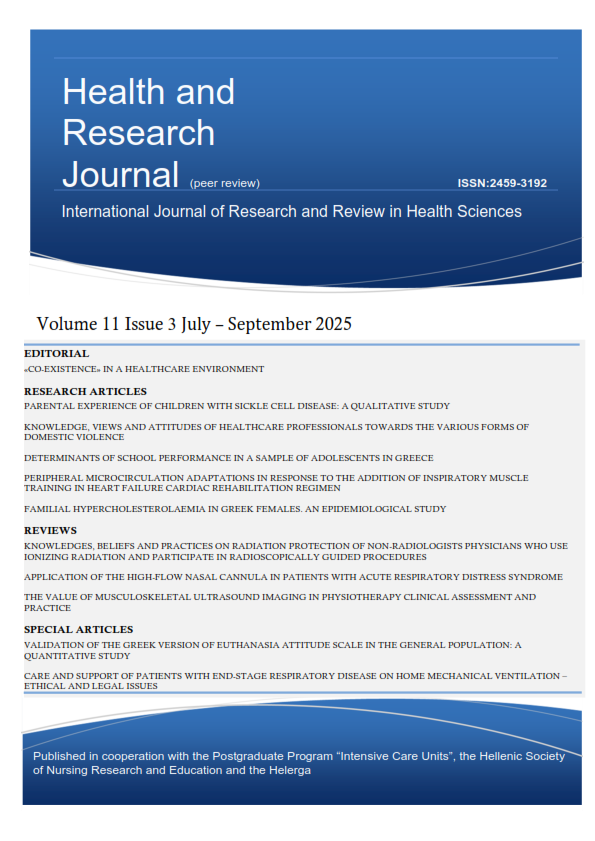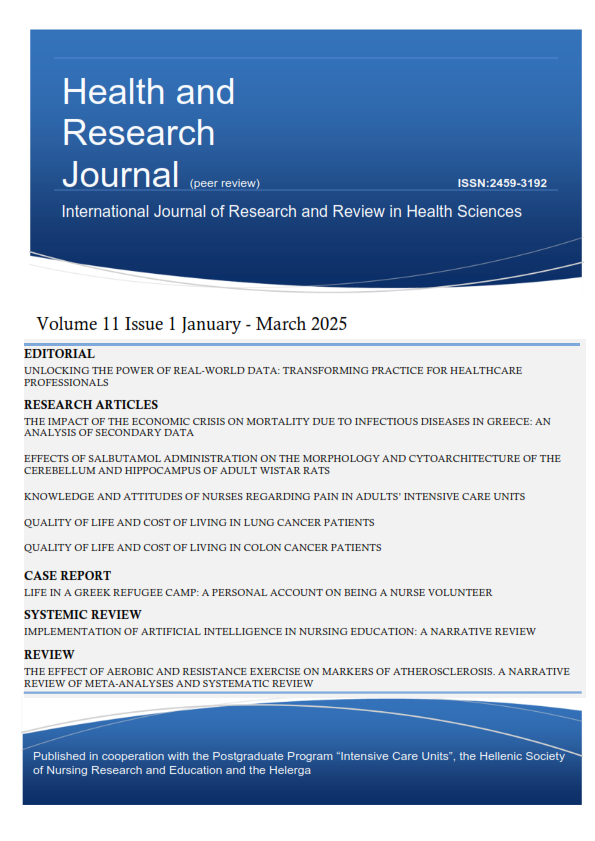Values in nursing and the virtues of the profession: a systematic critical review
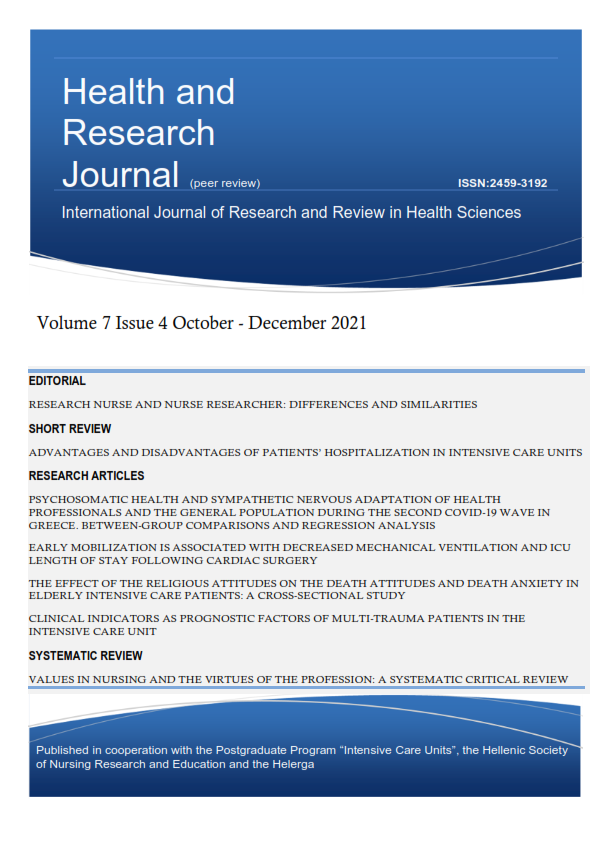
Abstract
Introduction: Values are the cornerstone of routine nursing practice. Yet, there is lack of clarity and controversies over the content of the term and its application in contemporary nursing practice.
Aim: The main aim of this discussion paper to explore the concept of ‘values’ in nursing, provide insights into their application with specific relevance to nursing and contemplate on its consequences on contemporary nursing practice.
Methodology: For this paper’s needs a critical literature search was undertaken within the past two decades whereby key terms and corresponding contexts were critically appraised with regards to the concepts involved. Search terms used included: nursing, values, deontology, caring, in both Pubmed and Greek databases. The Cohen's Kappa coefficient was used in order to assess inter-rater reliability.
Results & Discussion: After close perusal, the search yielded 55 papers with a distinct content on values in contemporary nursing. These were categorized in 5 distinct subthemes i.e. Ethical and individual values, Professional values and virtues, The development of values, Integrity and Dignity which were subsequently addressed and discussed further. Cohen's Kappa was 0.85 (95% CI:0.776-0.922) reflecting a strong level of agreement among the two authors.
Discussion: Professional values can be seen as tools that encourage nurses to become ethically sensitive professionals. Various studies on professional values in different countries have shown that the difference in the adoption and weight given to professional values is mainly due to the priorities given, rather than their nature per se. Ethical values significantly influence the scope of nursing practice, the way nurses think and act and consequently the care they provide with integrity and dignity being at the core of their practice delivery.
Conclusions: Values in nursing science should be developed primarily by direct learning in basic education through raising awareness among nurses regarding ethics and the value of nursing. Integrity and respect for dignity are referred to as two of the most basic values which may affect both nursing practice and care providers. The way nurses behave is a reflection of their knowledge, experience, ability, personality and judgment. This reflects the professionalism of nurses based on agreed common values.
Article Details
- How to Cite
-
Kosmidis, D., Koutsouki, S., & Theofanidis, D. (2021). Values in nursing and the virtues of the profession: a systematic critical review. Health & Research Journal, 7(4), 219–232. https://doi.org/10.12681/healthresj.28192
- Section
- Systematic Reviews
Copyright notice:
Authors retain copyright of their work and grant the Health and Research Journal the right of first publication.
License:
Articles are published under the Creative Commons Attribution 4.0 International License (CC BY 4.0). This license permits use, sharing, adaptation, distribution, and reproduction in any medium or format, including for commercial purposes, provided that appropriate credit is given to the author(s) and the original publication in this journal, a link to the license is provided, and any changes are indicated.
Attribution requirement:
Any reuse must include the article citation and DOI (where available), and indicate if changes were made.



